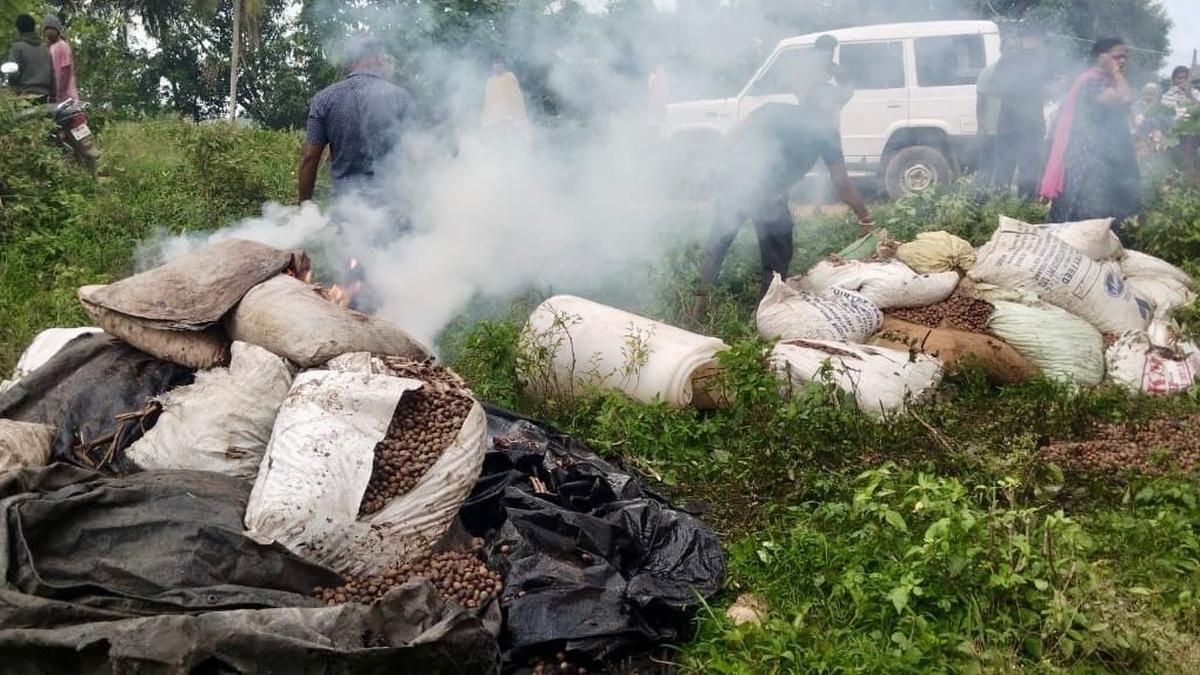Now Reading: Tamil Nadu Police Report 95% Conviction Rate in Prohibition Cases Since July 2024
-
01
Tamil Nadu Police Report 95% Conviction Rate in Prohibition Cases Since July 2024
Tamil Nadu Police Report 95% Conviction Rate in Prohibition Cases Since July 2024

Fast Summary
- Conviction Rate: Tamil Nadu police achieved 95% conviction rate in prohibition cases in the northern districts since July 2024.
- Hooch Tragedies: Over 90 lives were lost due to hooch tragedies in Kallakurichi,Villuppuram,and Chengalpet districts. Special teams expedited trials as part of a strategy to curb spurious liquor activities.
- Cases Registered: In one year, 14,900 cases were filed against suspects involved in brewing, transport, and sale of illicit liquor. Significant seizures included 1 lakh kg of jaggery and over 20,011 litres of arrack along with raw materials used for production.
- Investigations Deepened: Police examined sources of raw materials and transport networks. Assistance was sought from neighboring states where necessary; bank accounts were frozen and ill-gotten properties attached under financial scrutiny measures.
- Bootleggers Act & Bond Enforcement: Steps taken to detain habitual offenders under the Bootleggers Act; under Section 52AA provisions of Tamil Nadu Prohibition Act (1937),offenders executed bonds ensuring good behavior with strict follow-up enforcement mechanisms.
- Rehabilitation Efforts: Authorities introduced employment schemes such as loans for small businesses and providing milch animals to reformed offenders.
Indian Opinion Analysis
The multi-faceted crackdown on spurious liquor offenses by Tamil Nadu police highlights significant progress in addressing deep-rooted issues surrounding illegal alcohol trade that have plagued northern districts and led to tragic loss of life last year. The combination of strong legal measures-achieving an impressive conviction rate-and investigative rigor signals a serious intent at eradicating organized criminal activities tied to brewing illicit liquor.
Efforts toward rehabilitation are particularly noteworthy for their attempt at addressing underlying socio-economic factors contributing to habitual involvement in such crimes while enabling offenders’ reintegration into society through livelihood support programs like subsidy-linked employment initiatives.
The inclusion of financial scrutiny amplifies accountability mechanisms while sending a deterrent message regarding misuse or laundering proceeds derived from crime-a model which could shape broader policy applications across India’s states dealing with similar challenges linked to prohibition laws.For more details read here.

























